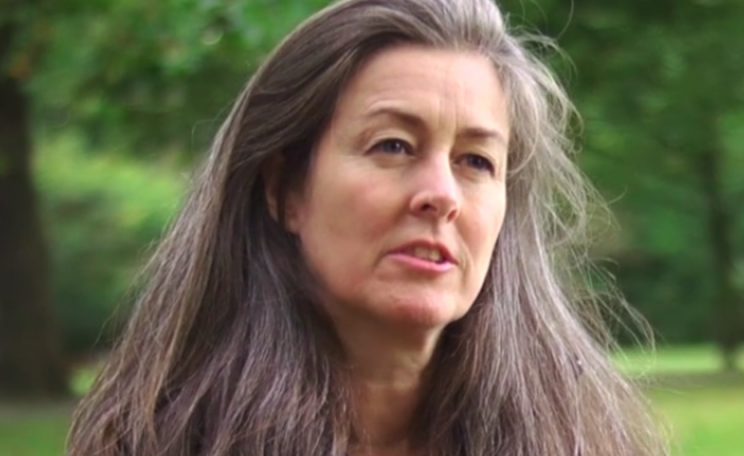It was a surreal setting for the latest episode of the world's climate negotiations: mega all-inclusive exclusive hotels stretching the whole way along a 3km promontory, promoting themselves and their private stretches of pristine beach as ‘Colonialism by the Sea'.
UN negotiators and business lobbyists jostled inside, alongside all-in-one fly'n'flop package deals for marrying couples (with 300+ friends booked in for a week of sun'n'surf). The jewel in the crown was the Moon Palace golf resort, 22km south of Cancun, which was reserved for the exclusive use of the UN and where the negotiations were held. It housed the negotiators and the sprinkling of heads of state that came to participate in the last few days. It is the most exclusive of the resorts, open only to those with a pass.
The NGOs (which have only ‘observer status') were housed either 7km away at the pass-restricted Cancunmesse conference shed/human storage facility (nearby a token 50m wind turbine had been erected six weeks before the event) or back up-town at the government-sponsored business and NGO space, Villa de Cambio Climatico, which was finally opened to the public midway through the second week.
Private shuttle buses drove delegates in between the pristine beachfront hotels and the artificially manicured, heavily fertilised and pesticide-treated golfing lawns. This is the well-known and heavily contested local ecocide of the Mayan Riviera. The development of the beach resorts and golf courses have caused untold destruction and pollution of the unprotected Cenotes, the largest underwater cave system in the world, threatening the existence of the already endangered turtles. Just a few metres beneath the surface jungle, stretching hundreds of kilometres south of Cancun, lies another world, a labyrinthine network of tunnels.
For the ancient Mayans, the Cenotes were portals to another realm, another life. Today they are still considered sacred by the local indigenous communities. I was honoured to be taken to explore one of the yet-to-be-mapped caves now at risk of being lost forever to proposed airport expansion. Temples to an underground world, the one we swam in was so undisturbed that the calcium had formed a layer like ice on the water. Their destruction by aggressive and unmonitored urban development is a hidden ecocide.
Just as local planning officials and the Mexican government are complicit in the local eco-colonisation of the Cenotes, in pursuit of profit through the levying of property laws over the land to big business, so too, on a macro level, the planning officials acting on behalf of our planet - the governments and their negotiators - are protecting the interests of big business by the creation of corporate-ownership mechanisms and trade deals over the world's forests.
Abdication of Responsibility
The only deal on the table this year was REDD+ - the commercialisation of forests into the hands of the corporate sector to make money out of supposedly saving forests.
The definition of forests includes previously decimated land; it will be traded for carbon credits, allowing countries to continue with their destruction, pollution and emissions-creation. In other words, continued abuse comes at a (small) price. The custodians of the land being subjected to trade have been ignored - they are not the ones who benefit. The indigenous rights of the local communities have been refused and earth rights have been dismissed in favour of silent corporate rights to control and trade. Where colonisation is defined as plundering of people and planet, REDD+ facilitates the flourishing of eco-colonisation of the forests.
Three days before the conclusion of the negotiations I secured a media pass to hear UN secretary-general Ban Ki-moon speak at a private audience in the luxurious confines of the Marriott beach hotel. Sharing the platform was the president of Wal-Mart, the largest corporation in the world, who received rapturous applause when he declared himself an environmentalist.
'Every second of every minute of every day a football-pitch-size of forest is destroyed', Ban Ki-moon informed us. Yet despite seeking reliance on this sobering fact, the destruction of the lungs of the earth was not acknowledged as a crime.
Ban Ki-moon, the man with ultimate responsibility for ensuring a solution was found to the destruction of the planet by the close of the two-week conference, flew out of Cancun on the Wednesday afternoon, safe in the knowledge that the negotiations were to prove futile in the face of such enormous mass ecocide. Without the leader of the UN in place to push for a viable solution, the negotiations were officially over. Ban Ki-moon had left the Moon Palace - the symbolism of the empty shell that remained was not lost on those few querying his early departure. The party was to continue without him for another 58 hours.
Spontaneous applause broke out between negotiators on Friday night at the Moon Palace when Patricia Espinosa, the foreign secretary of Mexico and the president of the UN climate conference, announced the deal was sealed. Governments were delighted to accept any compromise, such was the actual desire to be seen to have put something - anything - in place.
REDD+ was signed off by all bar one lone but vocal dissenting voice. The president of Bolivia, Evo Morales, was the only leader to denounce the REDD+ deal: he condemned as ecocide governments' failure to act. Without strong, legally binding safeguards, a 4-7C increase in temperature is now certain. For two weeks, grassroots organisations and citizens from all over the world had mobilised in Cancun against the false solution. Their voice had not been heard.
We the Peoples
Citizen engagement was far smaller this year, but increasingly vociferous and informed. The world of have and have-nots was echoed within the context of the negotiations as well as outside. On the surface of the negotiations - just like the beach resorts it was housed in - all was gloss, with a veneer of respectability. Lightly scratch the surface and you begin to see the truth: the people were carefully hidden from the well-heeled public.
Just as Cancun locals are forbidden to use the beachfront and forced to use separate modes of transport behind the hotels, so too was citizen engagement kept hidden, behind the scenes and isolated. Unlike last year in Copenhagen, where the Danish government has a tradition of paying to support and enable citizen engagement on important public issues, the Mexican government gave less than a tenth of the finance towards housing and assisting the Peoples.
The Peoples were divided up into different sites spanning a distance of 32km without transport being made available. Klimaforum 10, where I was speaking, and the global eco-village camp, was an hour's travel south and two buses away; La Via Campesina, the caravan of peasants who marched to Cancun in protest, were housed in the inner-city stadium, where people were given a diet of beans three times a day and sleeping was on the ground beneath the night-long glare of stadium lights.
High gates hid what lay behind them: 4,000-plus people who came because they cared were held in a place that was more akin to a refugee camp, in stark contrast to the plush five-star beach hotels. The people marched and protested, but heavily armed militia ensured that they stayed at more than arm's distance, some 7km away from the Moon Palace. The march happened out of the sight of those they wanted to communicate with, and as one negotiator admitted to me, their protests were not known about, or ignored. Only one leader went to speak with the Peoples - Evo Morales.
The United Nations was set up in 1945 to represent 'We the Peoples...' - the disconnect between those we have voted in and the Peoples they represent was blindingly apparent in Cancun. Our leaders, whose role it is to service the Peoples have lost sight of the interests they are supposed to be guarding. Whose interests are truly being protected here? It is certainly not the Peoples' nor the planet's.
Polly Higgins is a barrister, international environmental lawyer and
author of Eradicating Ecocide: Laws and Governance to Protect the Destruction of the Planet
| READ MORE... | |
 |
HOW TO MAKE A DIFFERENCE Ecocide: making environmental destruction a criminal offence Lawyer Polly Higgins is spearheading a campaign to have 'ecocide' recognised by the UN as an international crime against peace. But how will this work in practice? |
 |
INVESTIGATION Visionaries: Polly Higgins ‘The planet is currently enslaved to humans abusing its inherent rights – the right not to be enslaved or polluted,’ says environmentalist and barrister Polly Higgins. |
 |
NEWS Cancun climate summit fails to agree successor to Kyoto Protocol Major industrialised powers claim progress has been made towards a legally-binding agreement but campaigners warn new deal will be 'weak' and 'wholly inadaquate' in preventing climate change |
 |
NEWS ANALYSIS Cancun: your five-minute guide to the COP16 climate change conference Following the hype and failure of last year's Copenhagen COP15 summit, the Ecologist outlines what's on the agenda at the forthcoming COP16 Cancun conference – and assesses the chances of progress... |
 |
COMMENT The most democratic part of Copenhagen: the queue While the inside of COP15 may be the preserve of those with power and influence, the queue to get into the Bella Center is where the rich and famous rub shoulders with the rank and file... |







